Transforming Your E-commerce Business with Custom Product Sourcing
The landscape of e-commerce is evolving rapidly, and private-label dropshipping suppliers are revolutionizing how entrepreneurs build unique brands. Gone are the days when starting an online store meant settling for generic products that everyone else sells. Today's successful e-commerce businesses leverage private-label dropshipping suppliers to create distinctive product lines without the traditional burden of high minimum order quantities (MOQ) or extensive upfront investments.
The ability to source custom products through private-label dropshipping suppliers has opened new doors for ambitious entrepreneurs. This innovative approach combines the convenience of dropshipping with the brand-building potential of private labeling, creating a powerful formula for e-commerce success. As we explore this business model in depth, you'll discover how to transform your online store from just another marketplace participant into a memorable brand with unique offerings.
Understanding Private-Label Dropshipping Fundamentals
The Evolution of Private Labeling in E-commerce
Private labeling has traditionally been reserved for large retailers with substantial capital. However, private-label dropshipping suppliers have democratized this approach, making it accessible to businesses of all sizes. This evolution represents a significant shift in how entrepreneurs can build their brands while maintaining the operational benefits of dropshipping.
Modern private-label dropshipping suppliers offer sophisticated customization options, from simple logo placement to complete product redesigns. This flexibility allows store owners to create unique products that align perfectly with their brand vision and target market preferences.
Key Benefits of Private-Label Dropshipping
Working with private-label dropshipping suppliers offers numerous advantages over traditional retail models. The most significant benefit is the ability to build brand equity while minimizing inventory risk. Store owners can test different products and markets without committing to large inventory purchases, making it an ideal approach for both new and established businesses.
Additionally, private-label products typically command higher profit margins compared to generic dropshipping items. This pricing power comes from the unique value proposition and brand differentiation that custom products provide. The reduced competition in the private-label space also helps maintain consistent profit margins over time.
Finding and Evaluating Quality Suppliers
Essential Criteria for Supplier Selection
Selecting the right private-label dropshipping suppliers requires careful consideration of multiple factors. Manufacturing capabilities, customization options, quality control processes, and communication standards should all factor into your decision. Look for suppliers with a proven track record of working with e-commerce businesses and demonstrable expertise in your product category.
Reliability and consistency are paramount when choosing private-label dropshipping suppliers. Evaluate their production capacity, shipping times, and quality control measures. Request samples before committing to ensure their products meet your standards and align with your brand vision.
Building Strong Supplier Relationships
Successful private-label dropshipping relies heavily on strong supplier relationships. Clear communication channels, mutual understanding of expectations, and professional respect form the foundation of these partnerships. Regular communication helps prevent misunderstandings and ensures consistent product quality.
Invest time in understanding your supplier's processes and limitations. This knowledge helps you set realistic expectations for your customers and maintain smooth operations. Consider time zone differences, cultural nuances, and communication preferences when building these relationships.
Optimizing Your Private-Label Product Strategy
Product Selection and Market Research
Choosing the right products for private labeling requires thorough market research and understanding of your target audience. Analyze market trends, competition, and consumer preferences to identify opportunities for differentiation. Focus on products with steady demand and potential for customization that adds genuine value.
Consider factors such as product complexity, customization potential, and shipping requirements when making selections. Simple products with high perceived value often make excellent candidates for private labeling. Look for items where your unique branding can significantly enhance the customer experience.
Pricing and Profit Margin Strategy
Developing an effective pricing strategy for private-label products requires balancing multiple factors. Consider your target market's price sensitivity, competitor pricing, and the perceived value of your branded products. Private-label items typically command premium prices, but they must still offer clear value to customers.
Calculate all costs involved, including customization fees, shipping, marketing, and customer service expenses. Set prices that maintain healthy profit margins while remaining competitive in your market segment. Regular analysis and adjustment of your pricing strategy ensure long-term profitability.
Scaling Your Private-Label Business
Inventory Management and Growth Planning
As your private-label business grows, efficient inventory management becomes crucial. Work closely with your private-label dropshipping suppliers to forecast demand and ensure adequate stock levels. Implement systems to track product performance and identify opportunities for expansion or optimization.
Consider developing relationships with multiple suppliers to reduce risk and increase capacity. This approach provides backup options during peak seasons or supplier disruptions. Regular review of your product line's performance helps identify opportunities for new products or modifications to existing ones.
Brand Development and Marketing
Building a strong brand identity is essential for private-label success. Develop consistent messaging and visual elements that communicate your brand's unique value proposition. Leverage social media, content marketing, and influencer partnerships to build brand awareness and credibility.
Create compelling product stories that highlight the unique features and benefits of your private-label items. Use customer feedback and testimonials to strengthen your brand's reputation and build trust with potential customers.
Frequently Asked Questions
What minimum order quantities can I expect from private-label dropshipping suppliers?
Many private-label dropshipping suppliers offer flexible minimum order quantities, often starting as low as 5-10 units per product. Some suppliers even allow single-unit orders, though pricing may be more favorable with higher quantities. It's important to discuss MOQ requirements directly with potential suppliers as they can vary significantly.
How long does it take to launch a private-label product through dropshipping?
The timeline for launching a private-label product typically ranges from 2-8 weeks, depending on the complexity of customization and the supplier's capabilities. Simple logo additions might take just a few weeks, while more complex customizations could require additional time for sampling and adjustments.
What types of customization options are typically available?
Common customization options include logo printing, packaging design, color variations, material modifications, and product feature adjustments. Some private-label dropshipping suppliers also offer complete product redesigns or unique formulation options for certain product categories. The extent of customization possibilities varies by supplier and product type.
How do I protect my private-label brand when working with dropshipping suppliers?
Protect your brand by establishing clear agreements with suppliers, including non-disclosure agreements and intellectual property protection clauses. Work with reputable suppliers who understand the importance of brand exclusivity and maintain proper quality control measures. Regular monitoring of your products and marketplace helps ensure your brand integrity remains intact.
Table of Contents
- Transforming Your E-commerce Business with Custom Product Sourcing
- Understanding Private-Label Dropshipping Fundamentals
- Finding and Evaluating Quality Suppliers
- Optimizing Your Private-Label Product Strategy
- Scaling Your Private-Label Business
-
Frequently Asked Questions
- What minimum order quantities can I expect from private-label dropshipping suppliers?
- How long does it take to launch a private-label product through dropshipping?
- What types of customization options are typically available?
- How do I protect my private-label brand when working with dropshipping suppliers?


